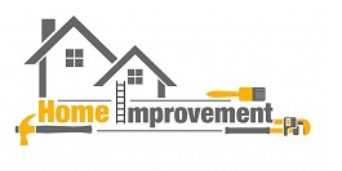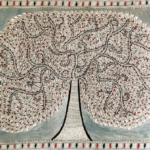Global farmers have significant issues related to climate change, ensuring food security, and the growing global population’s need for food. They apply several forms of Integrated Pest Management (IPM) to cultivate crops in a safe and effective manner. This involves utilizing organic techniques, growing crops that repel pests, relocating planting sites, and occasionally applying pesticides. These techniques of pest control in Gahanna, Ohio support the productivity and health of crops.
In order to assure pest removal, integrated pest management for sustainable agriculture essentially entails identifying the underlying causes of pest issues in any facility and implementing corrective and preventative actions.
This is performed by the facility’s hygienic design, cleaning processes, exclusion or access control, habitat alteration, behavioral modifications, physical removal of infestations, and pesticide usage as needed. IPM must be a continuous process that improves with time through good communication, activity monitoring, documentation, and people training.
Why Is Integrated Pest Control Important For Sustainable Agriculture?
Farming and the environment may both benefit greatly from integrated pest management, or IPM. Here are a few reasons to search for “affordable pest control near me” and pick an agency that offers IPM:
Decrease in Pesticide
IPM helps farms use less chemical pesticides. These substances may have negative consequences for both the environment and human health. In addition to potent insecticides, IPM incorporates a number of strategies, including changes to agricultural operations, the use of natural predators, and the application of less harmful pesticides as necessary.
Improved Pest Management
Integrated Pest Management (IPM) pest control service in Columbus, OH is a smart way to handle pests because it uses different methods that match each pest’s characteristics and life cycle. This approach reduces the chance of pests getting used to pesticides, which means we don’t have to use as much of those chemicals.
Keeping Good Bugs Safe
When we utilize IPM, we consider how our pest management tactics may harm beneficial critters like as bees, pest-eating bugs, and soil microorganisms. IPM contributes to the safety of these useful organisms, hence maintaining the health of our ecosystem.
Less Harm to the Environment
IPM is also beneficial to the environment because it involves using fewer chemicals. This means fewer pollutants in our water and soil. We may farm in a more environmentally friendly way by employing IPM, therefore contributing to the long-term health of our planet.
So make a wise decision when searching for “cockroaches control near me.”
Economical
IPM can result in long-term cost benefits by reducing the requirement for frequent pesticide treatments and the likelihood of pests growing resistant to insecticides.
Regulation Adherence
Integrated pest management (IPM) helps farmers follow pesticide laws and avoid fines and legal trouble. Using IPM techniques has many benefits, like better pest control, protecting helpful bugs, reducing environmental impact, and saving money. By using IPM pest control in Westerville, Ohio, farmers can maintain a healthy and sustainable farming system that’s good for the environment and people.
Essentials for an Effective Program in Integrated Pest Management
A good integrated pest management (IPM) program should adhere to a set of guidelines. Suppressing the pest population, or maintaining it below a specific threshold, is an objective.
These should be included in the program:
- Sustainability
- chemical-based where necessary
- Tools for identifying pests that include biological, cultural, and physical aspects
- Techniques to lessen pests in the future
- Techniques to reduce threats to the environment, health, and economy.
Keep in mind when searching for “bedbug control near me.”
In summary
IPM, or integrated pest management, is an essential part of sustainable agriculture. Integrated Pest Management (IPM) uses a variety of pest management tactics to limit the need for chemical pesticides, preserve valuable organisms, minimize environmental harm, and maintain a healthy ecosystem. Using IPM approaches can improve pest control and reduce the risk of pests developing a resistance to pesticides, not to mention being more economical over time. By implementing IPM, growers may also support a sustainable agricultural system and follow environmental guidelines for pesticide use.






Leave a Reply
You must be logged in to post a comment.